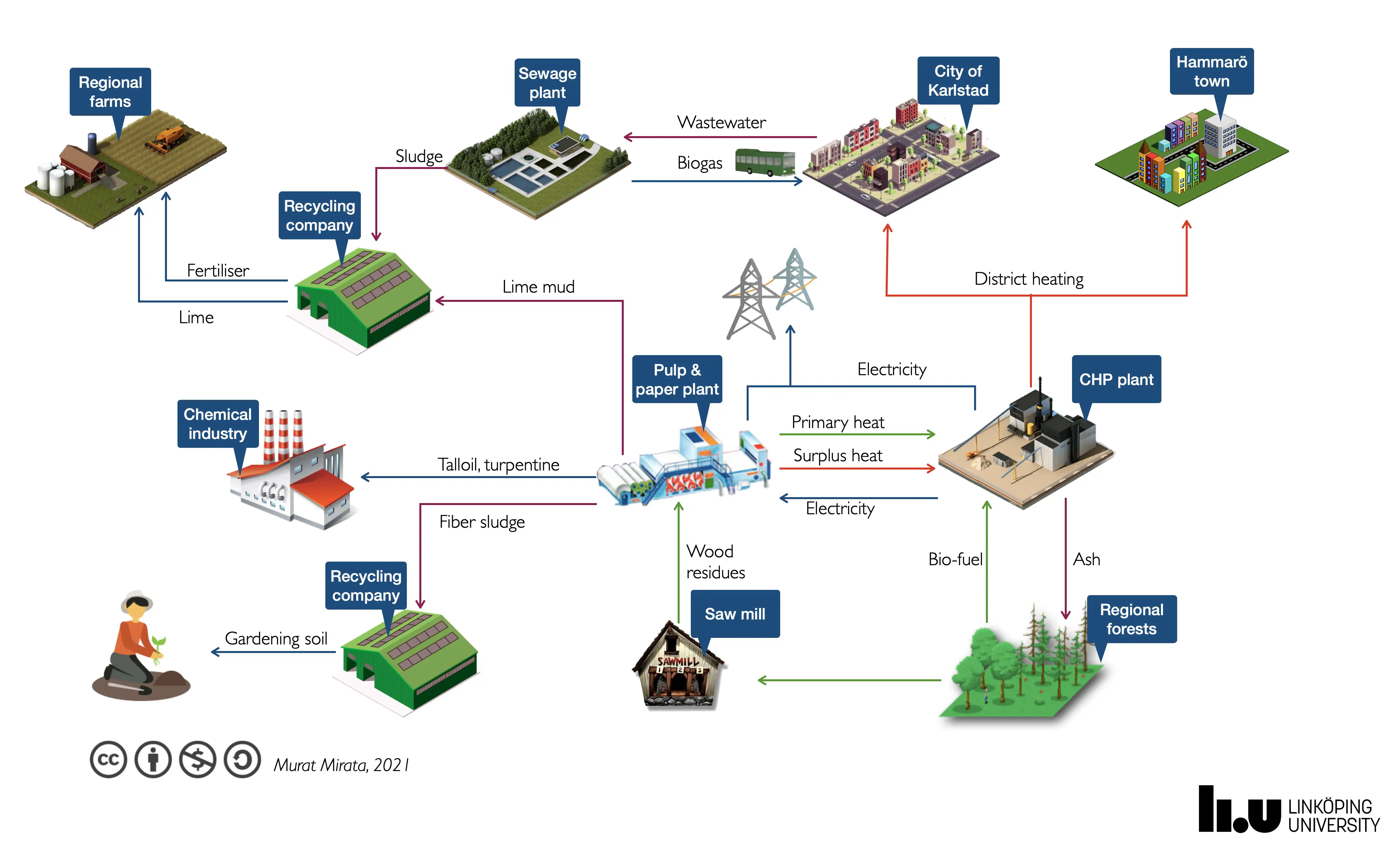Industrial and urban symbiosis in Karlstad
Biobased circular economy around a paper mill as a physical anchor.
Advantages
- Energy and resource efficiency
- Biobased resources
- Secondary resources
- Innovation capacity
- Costs for heating and waste management
- CO2 emissions
- Materials for landfills
Overview
The forest industry is extensive in Värmland, with about a quarter of the region's population working within or connected to the forestry sector. Karlstad is the largest city in the region, and over the years, industrial networks have been established in the area. In 1999, the business cluster Paper Province was started with the goal of providing the forestry industry in the region with expertise. Over time, the cluster has shifted its focus and now aims to contribute to a competitive region with a biobased economy. Nearly one hundred companies are part of the cluster, including major companies like paper and pulp mills, sawmills, recycling and waste management companies, and heat power plants. A lesson from Paper Province is that in order for a cluster to foster innovation and development, a variety of actors is necessary rather than a homogeneous group. When all actors are too similar, it is difficult for new ideas to emerge. This advocates for a mixed group of actors to find unconventional ideas where greater benefits can be found.
Stora Enso Skoghall AB, located in Karlstad, is one of the central companies within Paper Province. The company has many different flows linked to its operations, connecting several other actors. There are also some organizations not part of the Paper Province cluster but have industrial or urban synergies with the companies in the cluster. These include municipalities, county administrative boards, Region Värmland, wastewater treatment plants, recycling companies, chemical industries, universities, and research institutions.
Highlights
Excess heat from Stora Enso Skoghall is used as district heating in Karlstad Energi's district heating network. In 2014, Karlstad Energi expanded with a new biomass boiler to meet future increased demand, which reduced the need for excess heat from Stora Enso Skoghall, and much of the excess heat began to be dissipated. With a new agreement announced in December 2020, the supply of biobased excess heat was increased, reducing the need for more expensive fuels with higher environmental impact. Waste streams from Stora Enso Skoghall are handled by both Ragn-Sells and Econova. For example, sludge from the paper mill is composted by Econova and turned into input materials for soil products. Paper Province, in collaboration with Karlstad University, supports innovation processes to increase the value of by-products and promote biobased products.
Drivers and enablers
Ragn-Sells has an agreement with Stora Enso where Stora Enso receives a share of the revenue from the sale of their recycled by-products, providing both parties with an economic advantage to handle the by-products efficiently. The existence of the Paper Province cluster itself is an enabler as it ensures there is a platform for companies to meet and collaborate. Paper Province also acts as a coordinator, assisting with the coordination and financing of development projects. The geographical proximity between many of the companies in the region facilitates both communication and the exchange of by-products.

